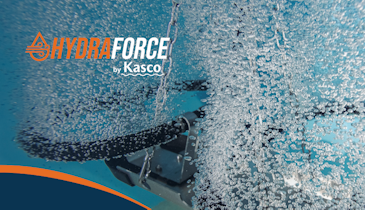Interested in Headworks?
Get Headworks articles, news and videos right in your inbox! Sign up now.
Headworks + Get AlertsOne frustrating thing about environmental communication is that the advantage always goes to the simple — or simplistic — argument.
I see this often in the way clean-water agencies get beat over the head about sanitary sewer overflows. Here in Wisconsin, radio talk shows and headline-grabbing political office seekers have regularly thumped on the Milwaukee Metropolitan Sewerage District when a major storm leads to a release of untreated sewage to Lake Michigan.
I’m not suggesting that sewer overflows are just fine and can be ignored. I just don’t like the way they get politicized and the way responsible agencies get tarred by the media publicity and the public response.
A complex issue
At least three things bother me about the way these incidents get treated. First, the news stories and the editorial comments sensationalize the event by reporting, with little or no explanation, the millions of gallons discharged. Rarely is it mentioned that most of what overflowed was essentially rainwater.
If it had rained twice as much, presumably that would have doubled the volume that overflowed, yet the amount of actual waste discharged would have been about the same. Or to think of it differently, if you took a nearly empty bottle of whiskey and filled it with water, then drank it, would you have consumed a fifth of liquor? The intent here is not to trivialize overflows but to add perspective.
Second, the wastewater agencies get the blame, as in “The XYZ Sanitary District has again discharged millions of gallons ...” In a sense the district is in fact responsible, because it is the party charged with protecting the waterways. But in another sense the district gets blamed for the effects of a natural event and for things that happened upstream.
How many residents seeing the news report and shaking their heads with disgust at the district have broken sewer laterals or sump pumps plumbed into their basement drains? In part, the agency gets blamed for the fact of living at the end of the pipe.
Third — and this point is closely related to the second — the blame game ignores the facts of how major wastewater treatment systems are designed.
Making compromises
Major new wastewater systems are built because old systems are undersized or in bad repair. In addition, in many cases the city was built with combined sewers that must be separated. However, these new systems are never designed to accommodate the effects of any storm that can be imagined — that would be horrendously expensive.
Instead, systems are built after a careful analysis of costs and benefits, and with the realization that overflows will likely occur after the most severe rainstorms. Typically, this point is forgotten once the systems become operational. Any bypassing then creates a hue and cry, and the clean-water agency gets vilified.
This has happened and still happens in Milwaukee’s case. I used to live in a community on Lake Michigan about 90 miles north of the city. Almost anytime we had a blue-green algae die-off on the shoreline or a health warning because of high E. coli at the beaches, I heard someone blame Milwaukee.
I sometimes gently tried to get the person to take a broader view. From those experiences, I learned that it’s a whole lot harder to convey what I’ve described above than to shout “millions of gallons of raw sewage.” People would rather decry a public agency’s supposed incompetence than contemplate the full scope of the issue.
Put it in context
Is all this just a fact of life? Maybe, but the trouble is that agency-bashing tends to poison the atmosphere when it’s time to make important decisions about maintaining and rebuilding infrastructure. It’s tough for an agency that has been defamed as an inept polluter to get support for a raise in rates to pay for an infrastructure project.
I guess the only answer is for clean-water agencies to talk — relentlessly — about the good they do, so that when adverse events happen, they are seen in context. Some years ago a page headline on the Milwaukee Metropolitan Sewerage District website read, “Without the deep tunnel, 61.3 billion gallons of wastewater would have overflowed into Lake Michigan since 1994.”
They didn’t say it was highly diluted wastewater, but I guess sauce for the goose is sauce for the gander. So here’s a (highly diluted) toast to the district and its communications staff. Cheers!





